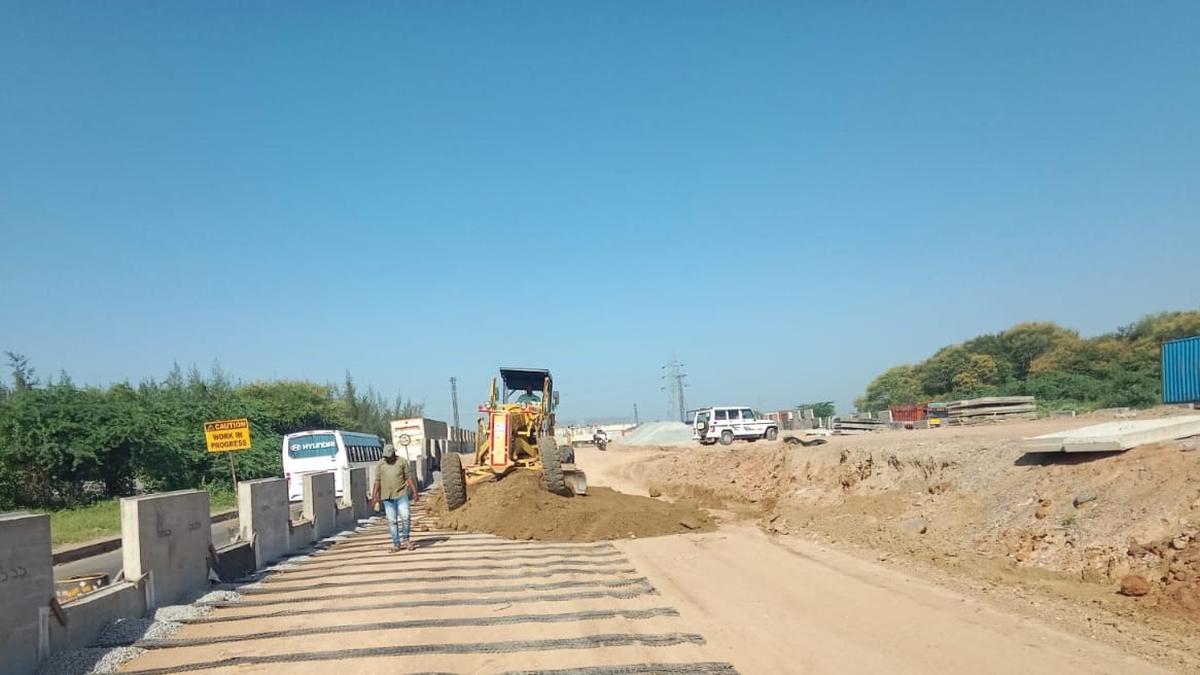
T.N. stretch of Bengaluru-Chennai Expressway may be completed by August 2025
The Hindu
Around 65% of Bengaluru-Chennai Expressway construction in Tamil Nadu complete, expected to reduce travel time by 2025.
Around 65% of the work to construct the four-lane, access-controlled greenfield Bengaluru-Chennai Expressway (BCE) has been completed in Tamil Nadu, where it runs for a total of 105.7 km through districts including Tiruvallur, Kancheepuram, Vellore, and Ranipet.
The expressway starts at Sriperumbudur and ends at Gudipala in Andhra Pradesh from where it will reach Bengaluru. The work inside the State are expected to be completed by August 2025 and will help cut down travel time and distance between Chennai and Bengaluru considerably, according to sources in the National Highways Authority of India (NHAI).
The 24.50-km package from Walajapet to Arakkonam has the most progress with over 84% of the work complete. While the civil work on this section cost ₹662.7 crore, utilities cost ₹20.46 crore. Following this, around 70% of the work on the 24-km Gudipala-Walajapet section has been completed. Over 64% of the fourth package, running for 31.07 km, from Kancheepuram to Sriperumbudur has been completed. The third package, the one from Arakkonam to Kancheepuram, has the least progress, with only about 52% of the work complete, officials said.
“Since the project is a greenfield one, we have not faced issues relating to land acquisition. The road passes through open lands mostly. We faced issues when it came to shifting electricity towers that were on the expressway’s path. This took us some time since we had to get concurrence from the respective revenue department authorities,” said an engineer associated with the ₹17,000-crore project.
The project will have 34 major and 31 minor bridges running to a combined distance of 15 km. The longest bridge in the alignment will run to a length of 840 m. The stretch in Tamil Nadu will have six toll plazas that will come up at the interchanges.











